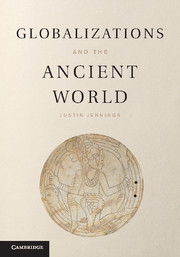Book contents
- Frontmatter
- Contents
- List of Figures and Tables
- Acknowledgments
- 1 Modernity's Greatest Theft
- 2 How to Pluralize Globalization
- 3 Cities and the Spread of the First Global Cultures
- 4 Uruk-Warka
- 5 Cahokia
- 6 Huari
- 7 But Were They Really Global Cultures?
- 8 Learning from Past Globalizations
- References Cited
- Index
7 - But Were They Really Global Cultures?
Published online by Cambridge University Press: 06 December 2010
- Frontmatter
- Contents
- List of Figures and Tables
- Acknowledgments
- 1 Modernity's Greatest Theft
- 2 How to Pluralize Globalization
- 3 Cities and the Spread of the First Global Cultures
- 4 Uruk-Warka
- 5 Cahokia
- 6 Huari
- 7 But Were They Really Global Cultures?
- 8 Learning from Past Globalizations
- References Cited
- Index
Summary
The existence of the widespread interactions described over the last few chapters will not come as a surprise to most readers. I remember as a boy curling up on the sofa to read about Genghis Khan's army sweeping across Eurasia, and I was fascinated with Hannibal's elephants, Hadrian's Wall, and the depictions of foreign diplomats laying gifts at Pharaoh's feet. We have learned since grade school about some of these earlier long-distance connections, and we know that these connections occasionally caused widespread cultural change. But I never read about ancient Egypt to learn more about my own world – I read to escape it (fighting evil forces on my way to Osiris was more fun than weeding the driveway). One of the great pleasures of reading about the past will always be in exploring different ways of life. Yet by treating the past as a qualitatively different world, we reify the Great Wall separating antiquity and modernity and diminish our ability to find patterns that connect the present to earlier eras.
For most scholars and general readers, ancient interactions are at best prologues to modern globalization – the expansion of Islam or the Inca Empire is seen as foreshadowing the radical changes that subsequently gripped the world. This book argues, however, that there were earlier periods of intense interactions that should be considered globalization eras in their own right. How do we determine if past globalizations occurred?
- Type
- Chapter
- Information
- Globalizations and the Ancient World , pp. 121 - 142Publisher: Cambridge University PressPrint publication year: 2010



